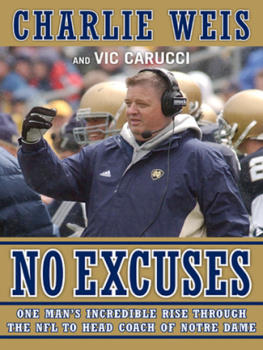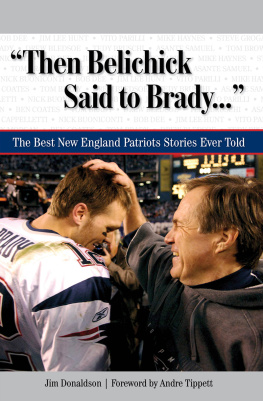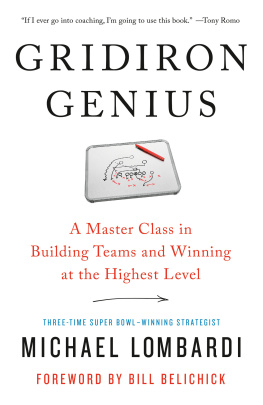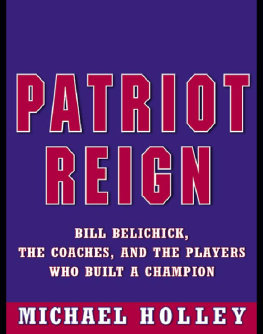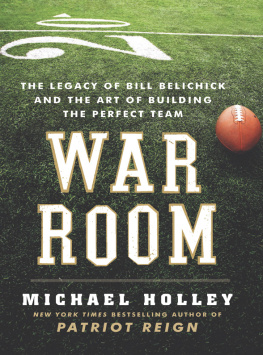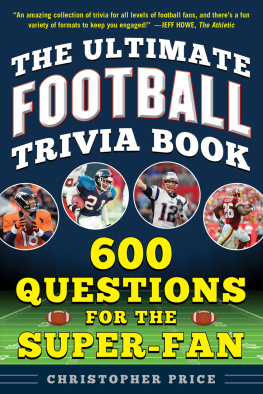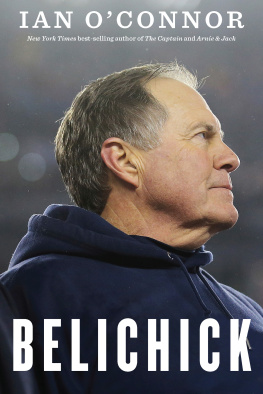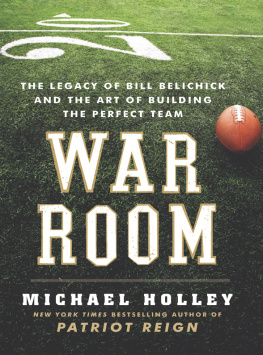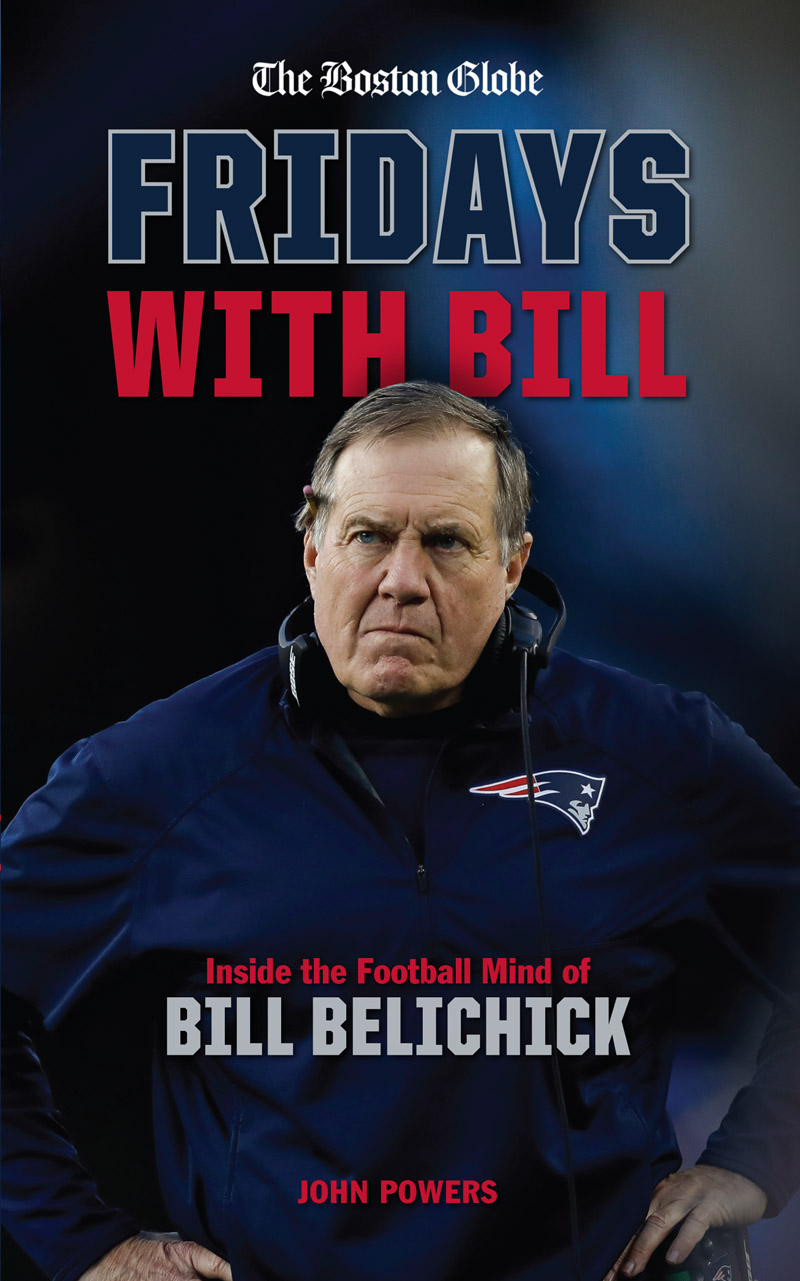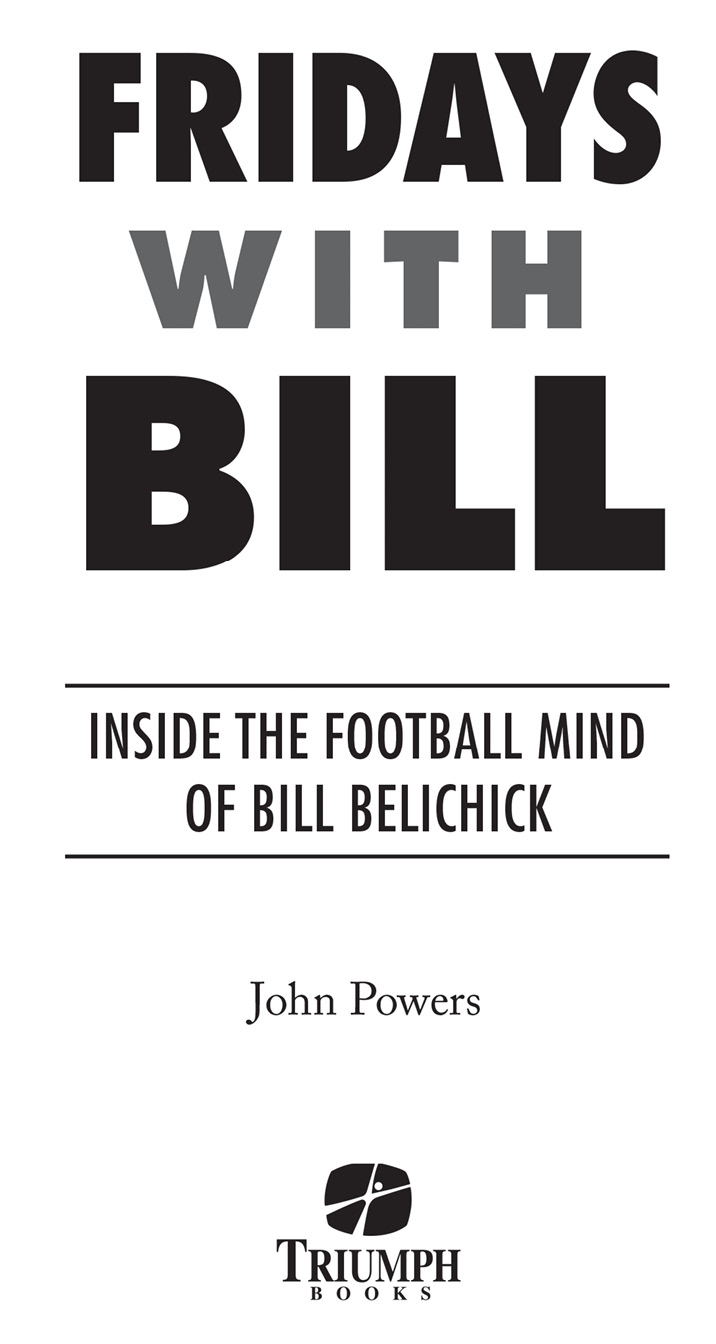
To George, who was present at the creation of both the Patriots and my career.
Contents
Introduction
Patriots coach Bill Belichick is famous for press conferences that are circumscribed and laconic. First, therell be a brief look back at the previous game: Were on to Cincinnati.
This usually will be followed by a terse explanation of decisions. Question: For those of us who werent there last night, can you update us on why Vince Wilfork didnt play? Answer: We just didnt put him in. Thats why. Question: Because? Answer: Because there were other players who played.
Finally, a thorough scouting report on the upcoming opponent, which invariably Belichick feels will pose a stiff challenge. And, upon request, specific and detailed assessments of individual players.
But the tone and content of Fridays sessions are distinctly different. The weekly preparations for Sundays game essentially are complete: Were winding down for the Steelers. Practices now are about fine-tuning. The midweek media crowd has dwindled to those regulars whom Belichick calls the Friday Warriors, most of whom have covered the club daily for years and whom Belichick has dubbed the few, the proud, not the free.

Belichick at the lectern for his daily briefing at Gillette Stadium during last years training camp. (photo by John Tlumacki)
How are you guys doing? the coach will inquire after arriving at the workroom podium in his usual cutoff hoodie. Hay in the barn? Are those weekend stories written? All right, whatever you need here.
What ensues is the most provocative and entertaining gathering of the week, as Belichick, unusually expansive and eclectic, serves up what he apologetically acknowledges can be long answers to short questions.
Fridays with Bill provides an intriguing glimpse into the best football mind in professional football, insights and musings from the man who has won an unprecedented five Super Bowl championships as head coach and who is destined for the Hall of Fame. This is Belichick at his most relaxed, profoundly philosophical and often puckish, holding forth on topics ranging from deferring the coin toss to his struggles with technology to his favorite Halloween candy.

The coach pondering a question from the beat reporters during the 2006 season. (photo by Matthew Lee)
Thats a great question, is his prompt to offer a Football 101 tutorial that provides a rare glimpse into the coaching philosophy that has created the National Football Leagues most enduring dynasty. Belichicks topics include everything from composing rosters to developing rookies to preparing for unfamiliar rivals to challenging officials calls on the field.
Fridays with Bill includes dozens of photographs displaying a startling variety of expressions from the leagues most impassive countenance. Its a book designed both for browsing through chapters that range from assembling a roster to conducting training camp to preparing for opponents and for an intensive seminar on the art of instructing and evaluating players. For pro football fans and followers, its a front-row seat in the Gillette Stadium media workroomno credential required.
John Powers
April 2018
1. Coaching
Coaching is in Bill Belichicks DNA. For more than three decades, his father, Steve, was an assistant and scout at the U.S. Naval Academy and was his sons foremost mentor. My dadwas a constant, said Belichick, whose first football job was at his fathers summer camp.
While the younger Belichick was much better at lacrosse, he had an obsessive passion for the gridiron and would have worked for free if it had given him an opportunity to immerse himself in the game. The first paid position came his way in 1975, when the Baltimore Colts hired him at 23 as a special assistant for $25 a week. I didnt know anything, he acknowledged, but at least I was a warm body.
In his first five years, Belichick worked for four NFL clubs, usually as a special teams assistant. I got a lot of exposure in a short time to a lot of football, he said. In the end, thats not a bad thing.

The Hoodie in winter, topped by official knit hat. (photo by Jonathan Wiggs)
Belichick collected his first two Super Bowl rings as defensive coordinator for the Giants, where he worked for a dozen years before obtaining his first head job with the Browns, who fired him after four losing seasons, just before they decamped for Baltimore. His renaissance began in 2000 in New England, where his exhaustive preparation, his absolute focus on the moment, and his unsentimental approach to his roster have produced five NFL titles and guaranteed him a place in the Hall of Fame.
I like football. I like the game, I like the players, I like what its all about, Belichick said. Every part of itwhether its assembling a team, working with new players, working with veteran players that are experienced and extremely talented at the highest level, game planning, scouting, preparation, practices, games. I enjoy all of it. It beats working.
SUMMER JOB
I was fortunate that I was able to work at my dads football camps, which was two to three weeks over the summer. It was a great experience for me. It was a summer job that was a week off from my other summer jobs, whether that was waiting or working for Mayflower Moving or whatever it happened to be. It was good because I had an opportunity to work with a lot of college coaches, other guys who eventually became pro coaches. A couple coaches like Ralph Hawkins and George Boutselis, [who] I actually worked with my first year at the Colts, worked in my dads camps, Whitey Dovell also. There were three of them on that staff.
That was a great opportunity for me, too, to work in those camps. It was a lot of good coaches, working with kids in high school, junior high school. Not that I was like a full-fledged coach or anything, but just the experience of being around it, seeing a lot of the things, hearing coaches talk, exchanging ideas, seeing different coaches coach different techniques at the same position. It was a great experience, too. It wasnt a high-paying summer job, but it was a good job. Glad I had it.
APPRENTICESHIP
I was playing lacrosse and that was probably my better sport. But I loved football and then when the opportunity came up to go with Coach [Lou] Holtz down to [North Carolina] State in the spring of 75, that was something I felt would marry well with my education, trying to get a masters and coach with him. When that didnt work outLou was the first coach that hired me and the first coach that fired me, as I like to remind himthen it fortunately worked out with Coach [Ted] Marchibroda at the Colts.
I didnt really have anything. I didnt really have anywhere to go at that point because the N.C. State thing fell through. I was totally open and fortunately that was able to work out with Ted, and, as I said, some of the other coaches that were on that staff like George and Whitey. They were able to recommend me. [Along with] Jerry Falls, who my dad coached and who was Ted Marchibrodas sons coach in high school. So all those connections helped me get started. Plus, I think the price was right.


